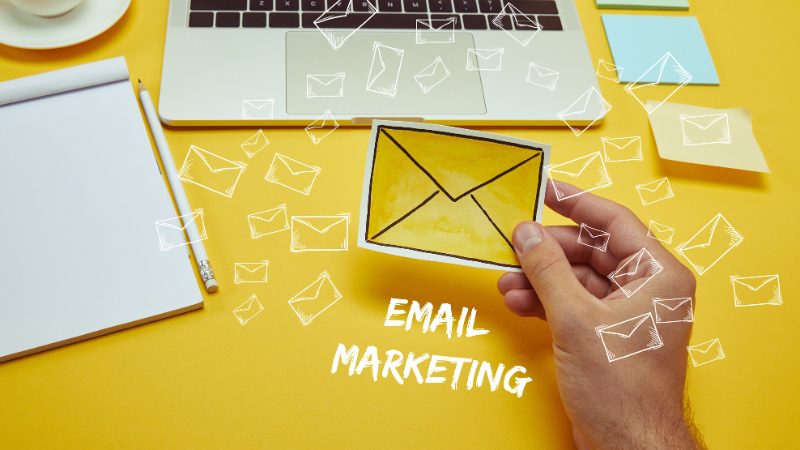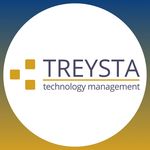Bulk Emailing Don’ts
Using Personal or Work Email to Send Bulk Emails
You may find it easier to send bulk emails from a personal or work account. Or maybe, you think it’s too costly to use an email service provider (ESP). Unfortunately, your account is now more likely to be flagged as spam. There is a higher scrutiny placed on these accounts for bulk email activities to discourage unsolicited emailing.
Sending bulk emails from personal accounts increases the risk of your email address being blocklisted. This can impact even your regular, non-bulk email communications. Meaning, an invoice or funding request may end up in a spam inbox instead of to the intended target.
Organizations sending bulk emails should utilize emailing services such as MailChimp or Constant Contact. They manage sender reputation, handle bounce rates efficiently, and reduce the likelihood of your emails ending up in spam folders.
Misuse of BCC (Blind Carbon Copy)
Using BCC is a common tactic of spammers. Because of this, sending bulk emails using BCC often triggers spam filters. Email servers and spam filters are designed to identify and block emails that appear to be suspicious, even if your email had good intentions.
Furthermore, if enough recipients mark your BCC email as spam, your email address or domain could be blocklisted by email providers, severely impacting all your future email communications.
No Unsubscribe in the Footer
Including an unsubscribe link in the footer of your emails is crucial for legal compliance with regulations like the CAN-SPAM Act, GDPR, and CASL. You must let your recipients easily opt out of communications.
This practice respects user preferences, reduces spam complaints, and improves engagement by maintaining a more interested and engaged audience.
The Role of Email Authentication: DMARC, DKIM, and SPF
Why DMARC, DKIM, and SPF Matter for Bulk Emailing
Your message is important. You want to ensure your emails reach your audience\’s inboxes and are not flagged as spam. This is where DMARC, DKIM, and SPF come into play:
DomainKeys Identified Mail or DKIM attaches a digital signature to emails, allowing recipients to verify their authenticity.
Sender Policy Framework or SPF specifies which mail servers are authorized to send emails on behalf of your domain, helping prevent email spoofing.
Domain-based Message Authentication, Reporting, and Conformance or DMARC uses DKIM and SPF to verify that emails are authentic. It also provides instructions on how to handle emails that fail these checks.
Implementing these protocols enhances email deliverability, protects against fraud, increases open rates, and is crucial for regulatory compliance. Moreover, beginning in 2024, Google and Yahoo now require DMARC for bulk sending.
Have questions about DMARC? Please reach out or submit a support ticket. We’d be more than happy to help with any questions you may have.
Bulk Emailing Dos
Best Practices for Bulk Emailing
1. Consent is Key: Always start with explicit consent from your recipients. This not only complies with regulations like GDPR and CAN-SPAM but also ensures your messages are welcomed.
2. Craft Quality Content: Personalize messages, keep them clear and concise, and include a compelling call-to-action (CTA). This increases relevance and engagement.
3. Maintain a Clean List: Regularly remove invalid or unresponsive addresses to improve deliverability and reduce costs.
4. Use a Reliable Email Service Provider (ESP): A good ESP can help manage campaigns, ensure compliance, and provide analytics for tracking and improving email performance. Remember, do not use a personal or work account to send bulk email.
5. Respect Recipient Preferences: Include a clear and easy way for recipients to unsubscribe, respecting their preferences and reducing spam complaints. Place an unsubscribe link in your footer to comply with CAN-SPAM Act and GDPR.
6. Use a Generic Email: Even when using an ESP, do not use a personal or work email address. Instead, use a generic address such as info@(yourdomain) or newsletter@(yourdomain).
7. Enable DMARC: This is crucial for regulatory compliance. Your emails are less likely to be marked as spam when you follow this important protocol.
8. Send in Batches: Sending your bulk email in small batches can help ensure your message is delivered. Many ESPs offer batching options along with specific delivery times.
Conclusion
Using bulk emailing best practices and email authentication protocols like DMARC, DKIM, and SPF can significantly enhance communication strategies for businesses and nonprofits.
Consent, quality content, list maintenance, reliable ESPs, ongoing analysis, and recipient respect form the foundation of effective bulk emailing.
Meanwhile, adopting DMARC, DKIM, and SPF ensures your emails are delivered securely and are seen by your audience.
Together, these practices help maximize the impact of your email campaigns, fostering positive relationships with your audience and driving engagement towards your organizational goals.
Resources:
FTC: CAN-SPAM Act: A Compliance Guide for Business
HubSpot: 20 Email Best Practices That Actually Drive Results
Business.com: Email Marketing Best Practices and Predictions for 2024





